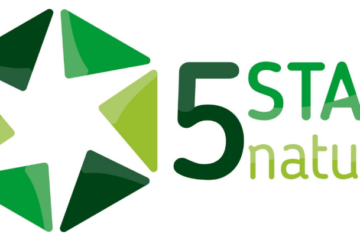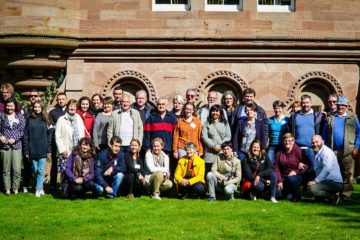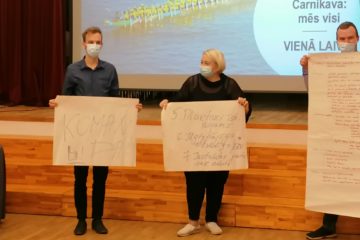Faire des produits locaux et des circuits courts des leviers de développement économique pour les territoires (Make local products and short circuits the economic development levers for the territories)
Project 14
INTRODUCTION
Making local products and local circuits a lever of economic development for the territory: A goal shared by the LAGs of the three agglomeration communities of Martinique and the LAG of Seine Aval in the Paris region since 2022.
Martinique – Seine Aval, from one bank to the other, a story of cooperation between two territories with cross-stakes. The objectives of the inter-territorial cooperation project are:
– Strengthening skills: Improving knowledge and skills of local ecosystem actors.
– Increased visibility: Increase the visibility of local products to reach a wider audience.
– Sharing of good practices: Facilitating the exchange and dissemination of good practices between partner territories.
– Commercial innovation: Develop innovative marketing methods adapted to the constraints of small producers and processors.
– Encouraging cooperation: Stimulating the interest of actors in collective approaches and strengthening links with other territories.
This cooperation project is an opportunity to boost the local economy and strengthen the resilience of the territories involved.
PRESENTATION OF THE PROJECT
Genesis: The cooperation project was born in 2021 from a common desire of the three Local Action Groups (LAGs) of Martinique to come together around a central theme: the knowledge and the valorization of local products and short-circuit actors. Collaboration extended to a fourth partner, the Seine Aval LAG in France, thus reinforcing the inter-territorial complementarity of the project.
The cooperation project was carried out in 3 stages:
1. Initially, a joint approach of the 3 LAGs to model the cooperation project:
a. Implementation of a command grouping between the 3 territories in order to ensure consistency, optimisation of management and rationalisation of public action
b. Selection of a Project Master’s Contract to model the cooperation project in 3 phases:
• Modelling the project with partners and actors from the territories: Analysis of existing and potential development, diagnosis of producers, processors and consumers, analysis of their needs and expectations.
• Search for partners outside the Martinique territory: LAG of Seine Aval
• Definition of the action programme
2. Then identification of the issues shared between the 4 LAGs, including the LAG of Seine Aval: Develop a strong territorial identity
• Promote local agricultural production and processed products
• Encourage the creation of collective and innovative projects
• Provide sustainable communication solutions
3. The last step was to define and conduct the project with the partner selected according to the actions chosen:
• Action 1: Opportunity to implement a pooled food processing tool, in response to the problems of farmers and small processors in the territories: need to process raw products to increase their added value, lack of food processing tools that are adapted to small volumes, limited investment capacity of enterprises and not appropriate individual investment.
• Action 2: Communicate, raise awareness and educate on local products and channels. Creation of communication materials, documents and videos to promote local agricultural products and food supply chains among the general public, especially young people.
• Action 3: Organisation of food days in both territories to bring together the actors of the food ecosystem around various themes.
PRINCIPAL OBJECTIVES
Three actions have been decided and implemented:
Action 1: Opportunity studies on the implementation of a shared agro-processing tool A study carried out on each of the territories (Seine Aval and Martinique) has made it possible to:
• Define local supply potential and farmers’ interest in sharing tools
• Determine the feasibility and relevance of a structure on and for the territory
• Propose a model of collective workshops for the processing of local agricultural products adapted to the needs of potential users
• Carry out a benchmark of existing tools locally, and other territories.
The objective is to create a workshop equipped for collective use, ensuring that the project is sized and adapted to local needs through thorough consultation. The sustainability of this tool will be guaranteed by an innovative legal and financial framework, allowing resources and know-how to be pooled. The study conducted in Seine-Aval concluded that a vegetable and canning plant is feasible, while in Martinique, the current study explores two options for developing tools adapted to farmers on the one hand and very small businesses on the other.
Action 2: Creation of a recipe booklet and promotional videos
The original recipe book, a real invitation to cook, is the result of a collaborative work combining local products from the four territories and the know-how of men and women, LEADER beneficiaries and Chefs. A digital version has been available on the partners’ websites and social networks since 29 May 2024, on the occasion of Europe’s Pretty Month. Video tutorials are in preparation. Four videos present the short circuits in Seine-Aval: a snail producer, poultry, a yogurt manufacturing company and an arborist. A video «filière» retraces one of the territory’s emblematic processing routes: wheat into flour, used for the manufacture of cookies.
Action 3: Organization of two food days in April and October 2023, bringing together nearly 200 stakeholders from the four territories’ food system: to improve the visibility of local products and increase their consumption; Work on the local product ecosystem and the entire food system; Enhance the chain from fork to fork; Meet stakeholders on the ground with invited delegations.
These meetings made it possible to:
• Publicize the cooperation project and involve the main partners, in particular health and food institutions as well as the educational environment;
• Highlight the talent companies of the territories in terms of agro-processing;
• Open the doors of agri-food companies financed by LEADER to a delegation of business leaders from the partner territory to exchange ideas between professionals on common issues: development strategies, workshop equipment, Processing, marketing.
• Involve young students by organizing contests to:
o Collect their proposals to increase the consumption of local products by young people «Alim jeunes: L’alimentation des jeunes vu par les jeunes» in Martinique. The winners had designed a fast food menu composed only of local products
o Improve the visibility of short circuit players: the solution: FARMIGO, an application for locating farm outlets to place orders, The European Commission has launched a project to promote the use of the River Seine in the French Alps. The students, accompanied by the LAG, have made their project a reality and are in the running for the local start-up incubator in September 2024.
ADDED VALUES OF THE PROJECT
This project involves a wide range of people and organizations, strengthening the links between producers, processors, consumers, and institutions.
Added value of the LEADER aspect: The LEADER programme was essential to structure this project, providing a framework for cooperation between rural territories and facilitating the mobilization of necessary resources. The LEADER approach has made it possible to bring together local actors around a common objective, thus promoting synergy between the territories involved. This framework also ensured a participatory approach, with the active involvement of local producers, processors and consumers.
Territorial impact: The project has had a significant impact on the territories concerned, both in Martinique and in the Seine Aval. The actions carried out have made it possible to strengthen the territorial identity, to value local agricultural productions with concrete benefits for farmers and small businesses. For example, the study of the opportunity to set up shared agro-processing tools has made it possible to determine the specific needs of each territory and propose adapted solutions, such as the creation of a vegetable and canning plant in the Seine Aval. In Martinique, the current study explores scenarios to address the distinct needs of farmers and very small businesses.
Inter-territorial impact: The partnership with the LAG of Seine Aval has brought an inter-territorial dimension promoting exchanges of good practices and expertise between the territories, overseas and continental. Proving that the stakes could be similar despite the distance. The involvement of actors from both regions has made it possible to highlight local specificities while working on common issues. Actions such as the Food Days held in April and October 2023 brought together nearly 200 stakeholders from the four territories’ food systems. These meetings have fostered professional exchanges and networking, strengthening the links between actors in both regions.
Relevance to LEADER Objectives: The project is in perfect alignment with the objectives of the LEADER programme, notably in terms of rural development, promotion of short circuits and support for local initiatives. Focusing on the development of food processing tools, awareness raising for local products and events to strengthen the link between producers and consumers, the project has contributed to the revitalization of local economies while promoting inter-territorial cooperation.
Project sustainability: The sustainability of the project is ensured by the implementation of sustainable initiatives, such as joint agro-processing workshops and communication tools, which can also benefit from funding through LEADER. These structures will continue to benefit local producers and enhance local products long after the initial project is completed. In addition, the involvement of young people in the development of digital tools such as the FARMIGO app shows a long-term commitment to fostering innovation and local entrepreneurship.
Impact in terms of affected people/organizations: The project has reached a wide range of beneficiaries: from local farmers and processors to educational institutions and the general public. Food days brought together 200 stakeholders from the sector, while the distribution of the recipe booklet and promotional videos helped raise awareness among an even wider public about short-circuit issues. The involvement of young people in the development of digital solutions or new initiatives to consume locally, supported by the LAGs, shows the direct impact of the project on the next generation and its potential to inspire future entrepreneurs in short circuits.


